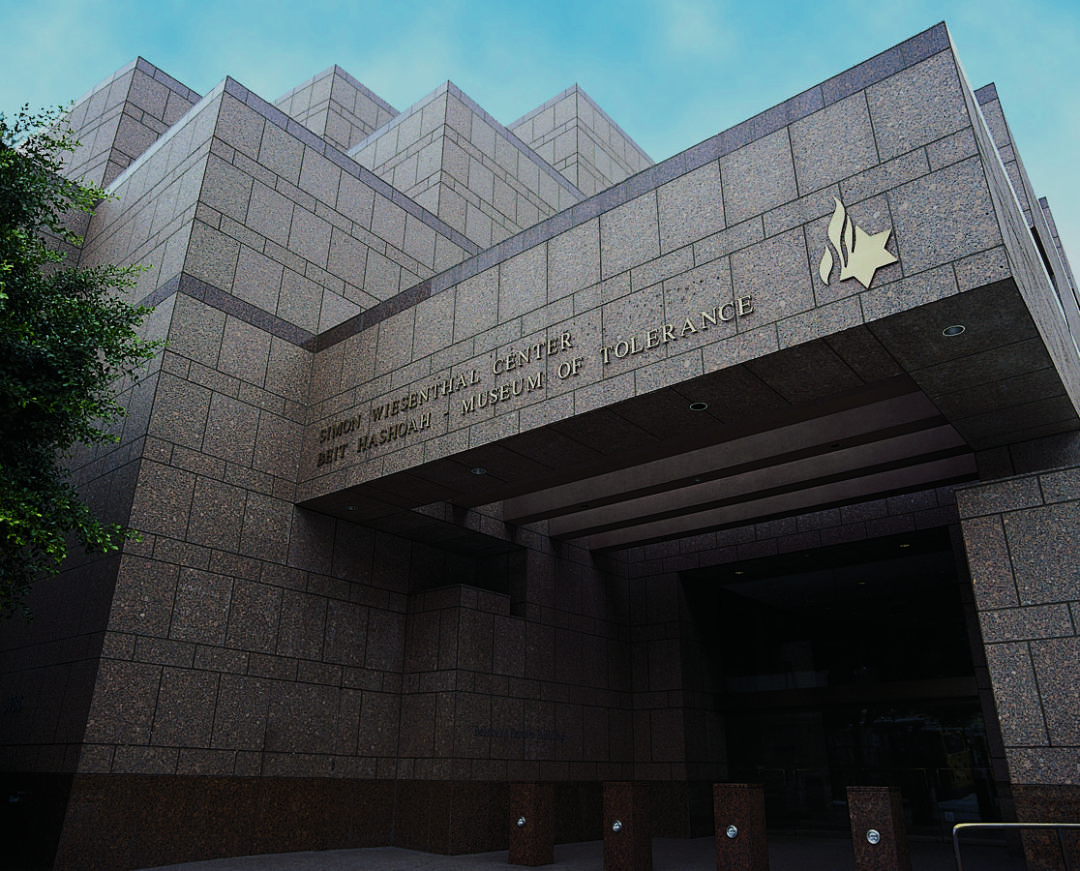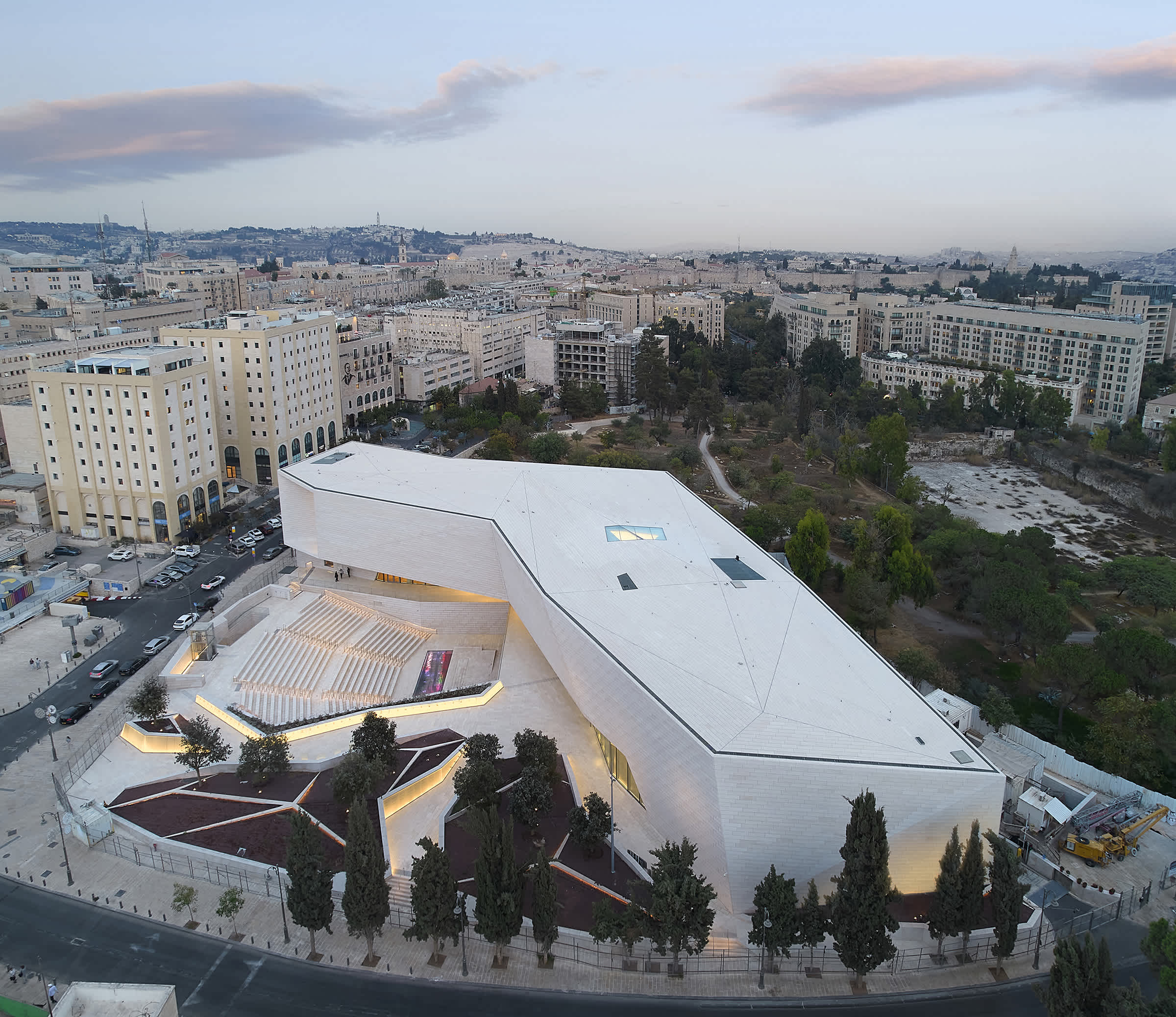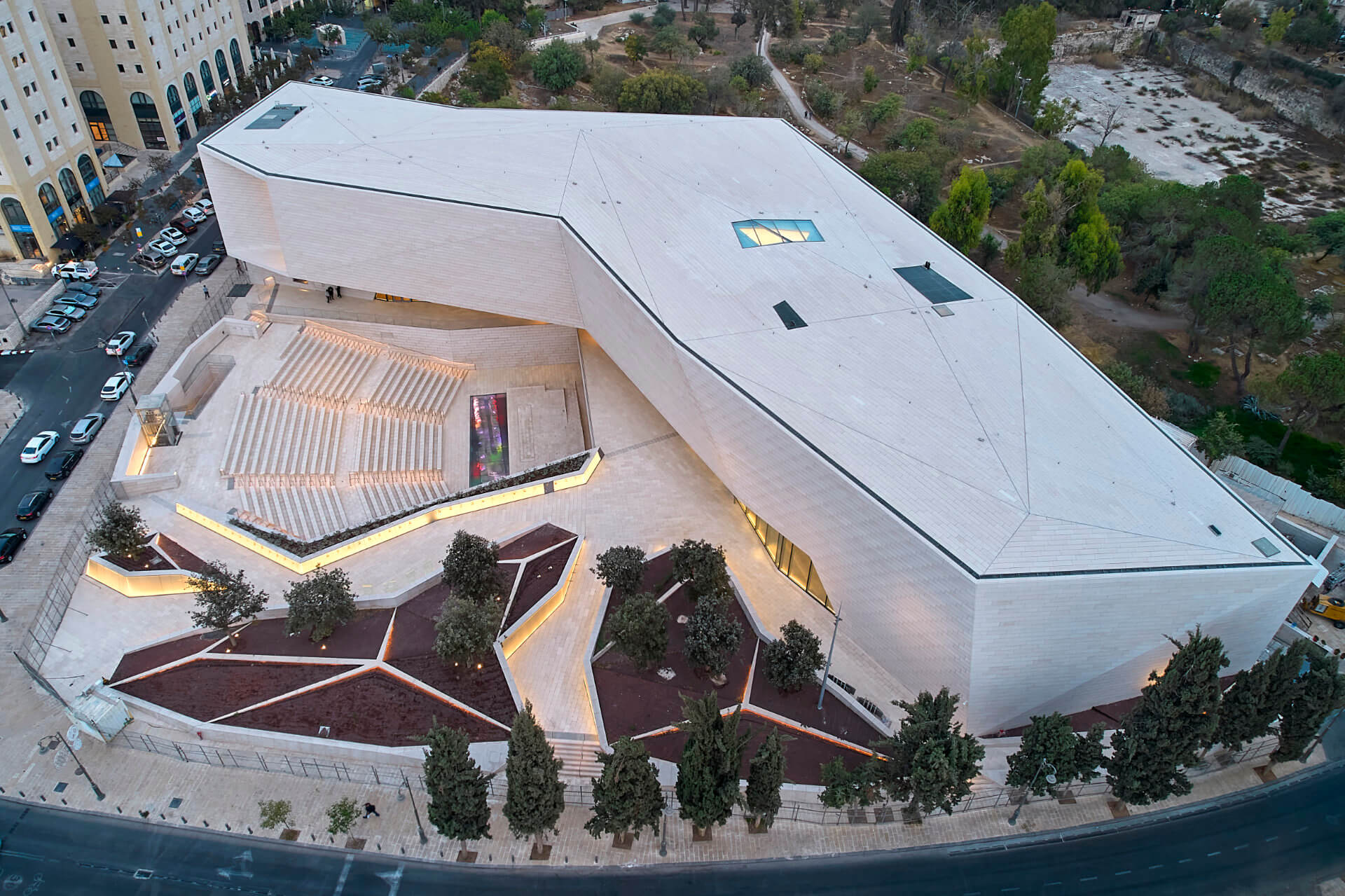Unveiling The Museum Of Tolerance: A Vital Journey Against Prejudice
In the heart of Los Angeles stands a beacon of education and advocacy: the Museum of Tolerance. More than just a collection of artifacts, this multimedia museum serves as a dynamic human rights laboratory, dedicated to confronting the darkest chapters of human history while illuminating pathways towards a more just and compassionate future. It challenges every visitor to deeply understand the Holocaust in both its historical and contemporary contexts, urging us all to confront the pervasive forms of prejudice and discrimination that continue to plague our world today.
Founded by the internationally renowned Jewish human rights organization, the Simon Wiesenthal Center, the Museum of Tolerance is singular in its mission. It stands as a testament to the enduring legacy of Simon Wiesenthal, the legendary Nazi hunter, who dedicated his life to justice and remembrance. This institution was conceived not merely as a memorial, but as an active response to the rise of Holocaust denial and a proactive effort to foster a global culture of tolerance and respect. It is a place where history meets present-day challenges, inviting introspection and inspiring action.
Table of Contents
- The Museum of Tolerance: A Beacon Against Bigotry
- What is the Museum of Tolerance?
- Immersive Journeys: Exploring the Exhibits at the Museum of Tolerance
- The Holocaust Exhibit: A Deep Dive into History
- Beyond the Holocaust: The Tolerancenter and Social Lab
- The Legacy of Simon Wiesenthal: A New Permanent Exhibit
- Education and Engagement: Programs at the Museum of Tolerance
- The Museum of Tolerance Jerusalem: A Global Extension of Empathy
- Planning Your Visit: Essential Information for the Museum of Tolerance
- Supporting the Mission: How You Can Contribute to the Museum of Tolerance
- Why the Museum of Tolerance Matters: A Human Rights Laboratory for Our Time
- Addressing Challenges and Embracing the Future
The Museum of Tolerance: A Beacon Against Bigotry
The Museum of Tolerance (MOT) is not just another museum; it is described as the only museum of its kind in the world, distinguishing itself through its unique approach to education and its unwavering commitment to human rights. It stands as the educational arm of the Simon Wiesenthal Center, an organization that has long been at the forefront of combating antisemitism, hate, and terrorism worldwide. The MOT’s very existence is rooted in the imperative to learn from history, particularly the horrors of the Holocaust, to prevent future atrocities and to promote a society where understanding triumphs over ignorance.
In a world often fractured by division, the public has come to view the MOT not only as a poignant symbol of society's quest to live peacefully together but also as an active laboratory for human rights. It’s a place where visitors are not passive observers but active participants in a journey of self-discovery and critical thinking. The museum’s core philosophy revolves around challenging individuals to confront their own biases and to understand the profound impact of prejudice and discrimination on both historical and contemporary societies. This proactive stance makes the Museum of Tolerance an indispensable institution in the ongoing fight for justice and equality.
What is the Museum of Tolerance?
At its core, the Museum of Tolerance is a multimedia museum in Los Angeles that meticulously examines racism and prejudice, with a profound and necessary emphasis on the Holocaust. It is designed to be an immersive and interactive experience, utilizing cutting-edge technology, personal stories, and multimedia presentations to foster empathy and understanding among its visitors. Its mission extends beyond historical recounting; it actively seeks to equip individuals with the tools to recognize and combat all forms of bigotry in their daily lives. The museum's dedication to this dual focus—historical context and contemporary relevance—is what truly sets it apart.
The founding vision for the Museum of Tolerance was born from a deep concern over growing Holocaust denial and the persistent presence of intolerance. By honoring the legacy of Simon Wiesenthal, the museum strives to perpetuate his tireless pursuit of justice and his unwavering belief in the power of education to transform hearts and minds. It serves as a vital educational center, continually evolving its programs and exhibits to remain relevant to the challenges of today’s world. From its inception, the MOT has been a place where difficult conversations are encouraged, and where the lessons of the past are applied to the complexities of the present.
Immersive Journeys: Exploring the Exhibits at the Museum of Tolerance
The experience of visiting the Museum of Tolerance is designed to be deeply personal and profoundly impactful. Its exhibits are not merely static displays but dynamic, interactive environments that engage visitors on multiple levels. From the moment you step inside, you are invited to embark on a journey that challenges your perceptions, broadens your understanding, and encourages self-reflection. The museum's commitment to multimedia presentations ensures that the complex narratives of history and human behavior are conveyed in compelling and accessible ways, making the lessons resonate long after the visit concludes.
Each exhibit within the Museum of Tolerance is meticulously curated to deliver a powerful message, whether through the re-creation of historical events, the sharing of personal testimonies, or interactive scenarios that put visitors in challenging ethical dilemmas. This approach ensures that the museum fulfills its role as a human rights laboratory, where visitors can explore the nuances of prejudice and discrimination in a safe yet thought-provoking environment. The goal is not just to inform, but to transform, inspiring individuals to become agents of positive change in their own communities.
The Holocaust Exhibit: A Deep Dive into History
Central to the Museum of Tolerance’s mission is its comprehensive Holocaust exhibit. This powerful section guides visitors through the harrowing history of the Holocaust, from the rise of Nazism to the systematic extermination of six million Jews and millions of others. It meticulously details the progression of prejudice, discrimination, and genocide, providing context and understanding to one of humanity's darkest periods. The exhibit employs a range of multimedia tools, including survivor testimonies, historical documents, and recreated environments, to convey the unimaginable scale and personal impact of this atrocity.
It is important to note that the Museum of Tolerance's Holocaust exhibit will temporarily close starting July 14, 2025. This closure is part of an ongoing commitment to excellence, as the museum plans to update and improve its technology, ensuring that this vital historical narrative continues to be presented with the utmost impact and accuracy for future generations. While this specific exhibit undergoes its transformation, visitors can rest assured that other crucial sections, such as the museum’s social lab and the poignant Anne Frank exhibit, will both remain open, continuing to offer profound educational experiences. The dedication to continuous improvement underscores the museum's commitment to its educational mandate.
Beyond the Holocaust: The Tolerancenter and Social Lab
While the Holocaust exhibit provides a historical anchor, the Museum of Tolerance extends its focus to contemporary issues through exhibits like the Tolerancenter and the Social Lab. The Tolerancenter is an immersive experience designed to challenge visitors to confront their own biases and assumptions. Through interactive scenarios and thought-provoking questions, it encourages self-reflection on issues of stereotyping, prejudice, and discrimination in everyday life. It is a powerful reminder that tolerance is not merely the absence of hate, but the active embrace of diversity and understanding.
The Social Lab, on the other hand, offers a more direct engagement with current events and social justice issues. It provides a platform for visitors to explore the dynamics of group behavior, the spread of misinformation, and the importance of individual responsibility in fostering a tolerant society. This exhibit, along with the moving Anne Frank exhibit, which offers intimate insights into the life and enduring spirit of Anne Frank, ensures that the Museum of Tolerance remains highly relevant. These sections collectively promote empathy and understanding by drawing clear connections between historical lessons and the challenges of today’s interconnected world.
The Legacy of Simon Wiesenthal: A New Permanent Exhibit
Among the newest additions to the Museum of Tolerance's permanent exhibits is a meticulously recreated section dedicated to the life and enduring legacy of Simon Wiesenthal himself. This powerful exhibit features Simon Wiesenthal's original Vienna office, complete with authentic documents, artifacts, furniture, and books. Stepping into this space is like stepping back in time, offering a tangible connection to the man who tirelessly pursued Nazi war criminals and dedicated his life to ensuring that the victims of the Holocaust would never be forgotten.
The exhibit serves as the setting for a compelling multimedia presentation that chronicles Wiesenthal’s extraordinary life, from his experiences as a Holocaust survivor to his relentless work as a Nazi hunter and human rights advocate. It highlights his unwavering commitment to justice and tolerance, principles that are deeply embedded in the very fabric of the Museum of Tolerance. This dedicated space not only honors a remarkable individual but also reinforces the museum's foundational commitment to historical truth and the ongoing fight against hatred, ensuring that his crucial work continues to inspire new generations.
Education and Engagement: Programs at the Museum of Tolerance
Beyond its static exhibits, the Museum of Tolerance is a dynamic educational hub, offering a wide array of programs designed to engage diverse audiences, from students to law enforcement professionals. These programs are meticulously crafted to provide practical tools and foster critical thinking skills necessary to navigate a complex world. The museum’s commitment to education is evident in its tailored approaches, recognizing that different groups require different methods to fully grasp the nuances of tolerance and prejudice.
For instance, the museum offers specialized programs such as "Steps to Tolerance" and "Tools for Tolerance® for Teens." These initiatives delve deeper into specific aspects of human rights education, equipping participants with actionable strategies for promoting respect and understanding in their own lives and communities. While these specialized programs may have higher group rates, the Museum of Tolerance also demonstrates its commitment to accessibility by making grants available on a limited basis to qualifying schools, ensuring that financial barriers do not prevent valuable educational experiences. This dedication to broad outreach underscores the museum's role as a proactive force for positive social change.
The Museum of Tolerance Jerusalem: A Global Extension of Empathy
While the Los Angeles institution is widely known, it's important to recognize the global reach of the Simon Wiesenthal Center's vision, which extends to the Museum of Tolerance Jerusalem (MTJ). Located in the vibrant downtown area of Jerusalem, the MTJ is more than just a museum; it also functions as a convention center and entertainment venue. Its presence in a city revered as sacred by multiple faith traditions—Judaism, Christianity, and Islam—lends it a unique and profound significance.
What truly distinguishes the Museum of Tolerance Jerusalem is its unwavering commitment to creating a space where difficult conversations can unfold with respect and openness. In a city often marked by historical and contemporary tensions, the museum represents a secular sanctuary dedicated to the equally sacred work of building human connection across differences. It is dedicated to promoting tolerance and human dignity, sharing lessons from world history and universal Jewish values, while actively fostering powerful dialogue between individuals from all cultures and religions. This global extension of the Museum of Tolerance’s mission underscores its universal relevance and its dedication to fostering peace through understanding.
Planning Your Visit: Essential Information for the Museum of Tolerance
For anyone considering a visit to the Museum of Tolerance, understanding the practical details can enhance the experience. The museum is conveniently located at 9786 West Pico Boulevard, Los Angeles, making it accessible for both local residents and tourists. Its central location in a bustling part of the city allows for easy integration into a broader Los Angeles itinerary. However, it's crucial to note the museum's operating hours: the MOT is closed on Fridays and Saturdays. This is an important detail for planning, especially for those visiting over a weekend.
For groups, particularly educational institutions, the Museum of Tolerance offers specific rates. For groups of twenty students or more, the per-person rate is $12.00. This provides an affordable option for schools looking to provide their students with this invaluable educational experience. As mentioned previously, specialized programs such as "Steps to Tolerance" and "Tools for Tolerance® for Teens" have higher group rates due to their intensive and tailored content. The museum also provides visitor information for its Anne Frank exhibits and a calendar of events, making it easy to explore its immersive and interactive exhibits and find out how to visit, access, and participate in its diverse programs.
Supporting the Mission: How You Can Contribute to the Museum of Tolerance
The vital work of the Museum of Tolerance is made possible through the generous support of individuals, foundations, and corporations who believe in its mission. As a non-profit institution dedicated to confronting bigotry and racism and promoting human rights education, the MOT relies heavily on philanthropic contributions to maintain its groundbreaking exhibits, develop new educational programs, and reach a wider audience. Supporting the museum is an investment in a more tolerant and understanding future.
The Museum of Tolerance offers a variety of donor opportunities, catering to different levels and types of engagement. Whether it's funding a specific exhibit, contributing to educational outreach initiatives, or simply adding your name to the donor wall, every contribution makes a tangible difference. Your support directly enables the museum to provide generations of people with an interactive educational experience that powerfully promotes tolerance and respect. It ensures that the lessons of history are never forgotten and that the fight against prejudice continues with renewed vigor.
Why the Museum of Tolerance Matters: A Human Rights Laboratory for Our Time
In an increasingly complex and interconnected world, the relevance of the Museum of Tolerance cannot be overstated. It serves as a critical human rights laboratory, a place where the lessons of the past are actively applied to the challenges of the present. By exploring racism and prejudice globally, with a profound focus on the history of the Holocaust, the museum offers more than just historical facts; it offers insights into human behavior, the dynamics of groupthink, and the insidious nature of hatred. This makes it an essential resource for anyone seeking to understand the roots of intolerance and how to combat it effectively.
The museum's emphasis on interactive exhibits, personal stories, and multimedia presentations is not just about engagement; it's about fostering empathy. Empathy is the cornerstone of tolerance, allowing individuals to step into the shoes of others and understand different perspectives. This aligns perfectly with YMYL (Your Money or Your Life) principles, as the museum directly impacts societal well-being by promoting critical thinking, ethical decision-making, and responsible citizenship. It addresses fundamental questions about human dignity, justice, and the pursuit of a peaceful coexistence, making it an invaluable institution for shaping informed and compassionate individuals.
Addressing Challenges and Embracing the Future
Like any dynamic institution, the Museum of Tolerance continuously adapts to new challenges and opportunities. The planned temporary closure of the Holocaust exhibit for technological updates starting July 14, 2025, is a testament to this forward-thinking approach. It reflects a commitment to leveraging the latest advancements to enhance the visitor experience and ensure the historical narrative remains as impactful and accessible as possible. This proactive stance ensures that the museum remains at the forefront of human rights education, capable of engaging new generations with its vital messages.
The museum's ability to evolve while staying true to its core mission—challenging visitors to understand the Holocaust in both historic and contemporary contexts and confront all forms of prejudice and discrimination—is crucial. By maintaining open communication about these updates and ensuring other key exhibits remain accessible, the Museum of Tolerance demonstrates its dedication to its audience and its enduring relevance in a rapidly changing world. Its future will undoubtedly involve continued innovation, outreach, and unwavering advocacy for human dignity and respect.
The Museum of Tolerance stands as an indispensable institution in the global fight against prejudice and discrimination. From its powerful Holocaust exhibit to its interactive Tolerancenter and Social Lab, it offers a profound and transformative experience for every visitor. It is a place where history is confronted, empathy is cultivated, and the tools for a more tolerant future are forged. By understanding its history, exploring its exhibits, participating in its education programs, and even considering donor opportunities, we can all contribute to its vital mission.
Have you visited the Museum of Tolerance? What was your most impactful experience? Share your thoughts in the comments below, and consider exploring other articles on our site that delve into human rights education and historical understanding.

Museum of Tolerance – Explorer Field Trips

Museum of Tolerance Jerusalem Opening | L'Observatoire International

Museum of Tolerance Jerusalem - LSI Stone®